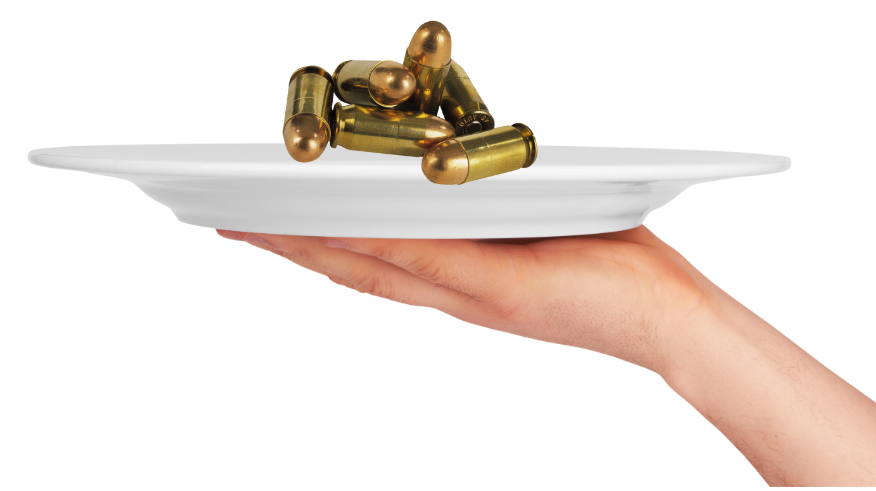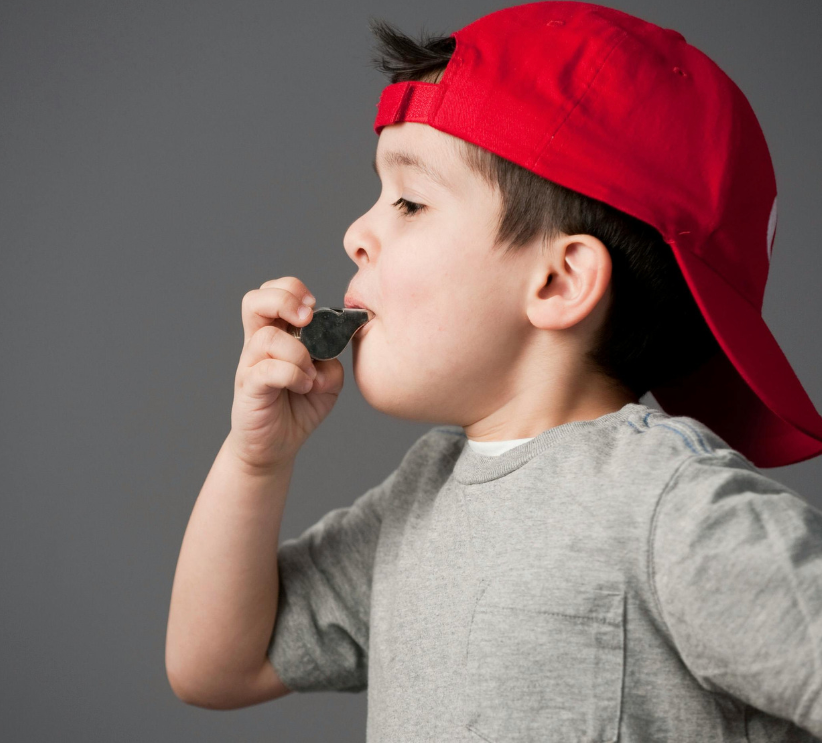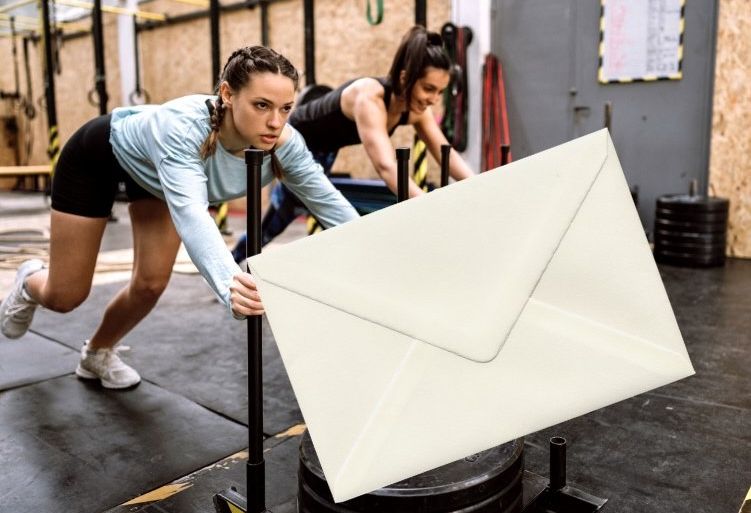13 everyday idioms that make zero sense until you know where they come from
Sweating like a pig? Pigs don't sweat!

I've always really liked cliches, idioms, proverbs, and common phrases that we like to use over and over. They can get repetitive at times, but they're crucial tools in communication. They allow us to convey so much meaning in so few words — a commonly understood shorthand that can get complex points across quickly.
The only problem is that many of the most popular idioms in common use date back hundreds of years. In that time, they've either become outdated, or seen their words adopt new meanings. In some cases the idioms have been shortened or reversed, losing important context. So when someone tells you to "bite the bullet," you may inherently know what they mean — but if you really stop and think about it, you have no idea why it means what it means.
If you're a word nerd like me, you'll be absolutely fascinated by the origin and evolution of some of these common idioms, and how they came to mean what they mean today.
1. Sick as a dog / Working like a dog
Ever have a cold and tell someone you're "sicker than a dog?" Kind of rude to dogs, in my opinion, and a little strange. I've had dogs my whole life and can't remember any of them coming down with the flu.
Sick as a dog actually originates hundreds of years ago, if not longer. Some explanations say that in the 1700s, stray dogs were responsible for the spread of many diseases, along with rats and other gutter critters. There are also references as far back as the Bible to dogs eating their own vomit — sounds pretty sick to me.
What about working like a dog? Dogs are the laziest creatures around! For this one you have to remember that dogs as "pleasure pets" is a relatively recent phenomenon, and before that they had to earn their keep by working tirelessly on the farm to herd and protect the animals.
2. Sweating like a pig
This is an extremely common idiom that we all use and accept. There's just one problem with it. Pigs don't sweat!
So... what gives? You might be surprised to hear that 'sweating like a pig' actually has nothing to do with farm animals.
According to McGill University: "The term is actually derived from the iron smelting process in which hot iron poured on sand cools and solidifies with the pieces resembling a sow and piglets. Hence 'pig iron'. As the iron cools, the surrounding air reaches its dew point, and beads of moisture form on the surface of the 'pigs'. 'Sweating like a pig' indicates that the "pig" (ie iron) has cooled enough to be safely handled. And that's a "pig" you wouldn't want to eat."

3. Bite the bullet
Biting the bullet refers to sucking it up and doing something hard, something you don't want to do but is necessary, and accepting the difficult consequences and/or pain that comes with it. But what does that have to do with biting a bullet?
There are different theories on this. One common explanation is that in the olden days it was common for soldiers on the battlefield receiving surgery to bite down on a lead bullet. You've probably seen people in moving biting down on a piece of wood or leather strap. Since lead is a softer metal, it would give just a little bit between their teeth and not damage them. So the idiom 'biting the bullet' means, okay, this is going to suck, just bite down and get through it.

4. Healthy as a horse
This one has always confused me. As a layman, it seems like horses are prone to injury and have trouble recovering when they hurt themselves. More research shows that horses can not vomit, which means they are highly at risk for deadly colic episodes. Doesn't sound super healthy!
The best explanation I can find for healthy as a horse is that, again, in the olden days, horses were symbols of health and strength and vitality. Which checks out — they're really powerful, majestic creatures.

5. Slept like a baby
To many parents, this common idiom is rage-inducing. If babies sleep so well, why am I so exhausted all the time?!
Yes, babies are notorious for waking up every few hours or at the first sign of hunger or a dirty diaper. It puts their parents through the wringer (another strange idiom!). But to the outside observer, a sleeping baby is pure bliss. They are so innocent and blissfully unaware of anything going on around them — after all, if they're not sitting in a dirty diaper they really don't have too many other things to worry about. Also, despite all their shenanigans, babies do sleep a lot — around 17 hours a day or so. When you put it that way, the idiom starts to make a little sense.

6. Happy as a clam
Clams are a lot of things. Some people find them delicious, others disgusting. One thing I think we can all agree on is that clams don't seem particularly happy, which makes this idiom a bit of a conundrum.
The truth is that this phrase is actually derived from the full version: "Happy as a clam at high water."
At low water, or low tide, clams are exposed to predators. At high tide, they're safe in deeper water. That's about as happy as mollusk can get!

7. The proof is in the pudding
Hey, we all love pudding. But what the heck does this mean? If you're not familiar, it refers to judging something based on the results it generates — but what that has to do with pudding is a bit of a mystery to most people.
This is another example of a shortened idiom that makes more sense when you read the full, original line: "The proof of the pudding is in the eating."
According to Dictionary.com it "originated as a reference to the fact that it was difficult to judge if the pudding was properly cooked until it was actually being eaten. In other words, the test of whether it’s done is taking a bite."
8. Don't look a gift horse in the mouth
I've always been a big fan of this idiom, which basically means that it's rude to over-analyze or criticize something you got for free, especially when it was a nice gesture from a friend or loved one.
But here we go with horses again! This phrase likely originated from the fact that you can determine a horse's age and health by looking at its teeth. So if someone were to give you a horse as a gift, it would be rude to immediately try to see how "good" it was by looking in its mouth.

9. Clean as a whistle
Whistles are objectively disgusting. They collect spit and germs every time they're used. I certainly wouldn't hold them up as a beacon of cleanliness.
So what gives with this idiom? There are several possible explanations that have been proposed.
First, a whistle won't work, or won't work very well, if it has debris blocking up its inside. So you can think of "clean" in this case as being "empty or free of clutter." Another possibility is that, in this idiom, clean refers to sharpness — as in the sharp sound a whistle makes — and that inference has been lost over time.

10. Pull yourself up by your bootstraps
This phrase is commonly use to describe someone who was "self-made" and built themselves up into a success from nothing. Imagine lying on the floor and hoisting yourself to your feet using only the straps on your boots.
The only problem is... that's impossible! And that's exactly the point. This idiom is actually meant to be sarcastic and to imply that "socioeconomic advancement... was an impossible accomplishment," according to Useless Etymology.
11. Have your cake and eat it too
Why bother having a cake if you can't eat it? That's the mystery of this extremely common idiom or proverb (sometimes worded "you can't have your cake and eat it, too")
The explanation is actually really simple. "Have" in this case really means "keep" or "hold onto." So, in that case, it makes perfect sense that you can't eat your cake and also still have it. "You can't have it both ways," would be another way of saying it.
12. Head over heels
Very rarely do people describe being deeply in love without using this phrase. But it's a confusing one, because isn't your head always over your heels? That doesn't seem to be an extraordinary state of being.
The idiom here has actually been flipped over time for unknown reasons. Originally, it went "heels over head", implying upside down. Some say it may also reference certain sexual positions...

13. Pushing the envelope
When I think of radical, risky, or pushing the limits of what's possible, sliding an envelope across a table just somehow doesn't quite capture it for me. But an envelope doesn't have to be just a paper container that you put other paper in. It can actually refer to different parts and practices of an aircraft.
"Push the envelope comes from aeronautics, where it refers to a set of performance limits that may not be safely exceeded," according to Merriam Webster. Now that's more like it!
- Why cooking is a metaphor for life, from a professional chef. ›
- Idioms from around the world that become hilarious when translated into English ›
- 15 wise sayings you've probably never heard of, turned into cute illustrations. ›
- 15 awesome, endangered idioms almost no one says anymore, but should - Upworthy ›
- Video explains why having a self-absorbed parent robs you of a personality - Upworthy ›
- 25 pairs of famous but contradictory idioms that have us more confused than ever - Upworthy ›
- Expand your vocabulary and sound smarter with these 16 words - Upworthy ›
- 15 American slang phrases that can't be translated - Upworthy ›




